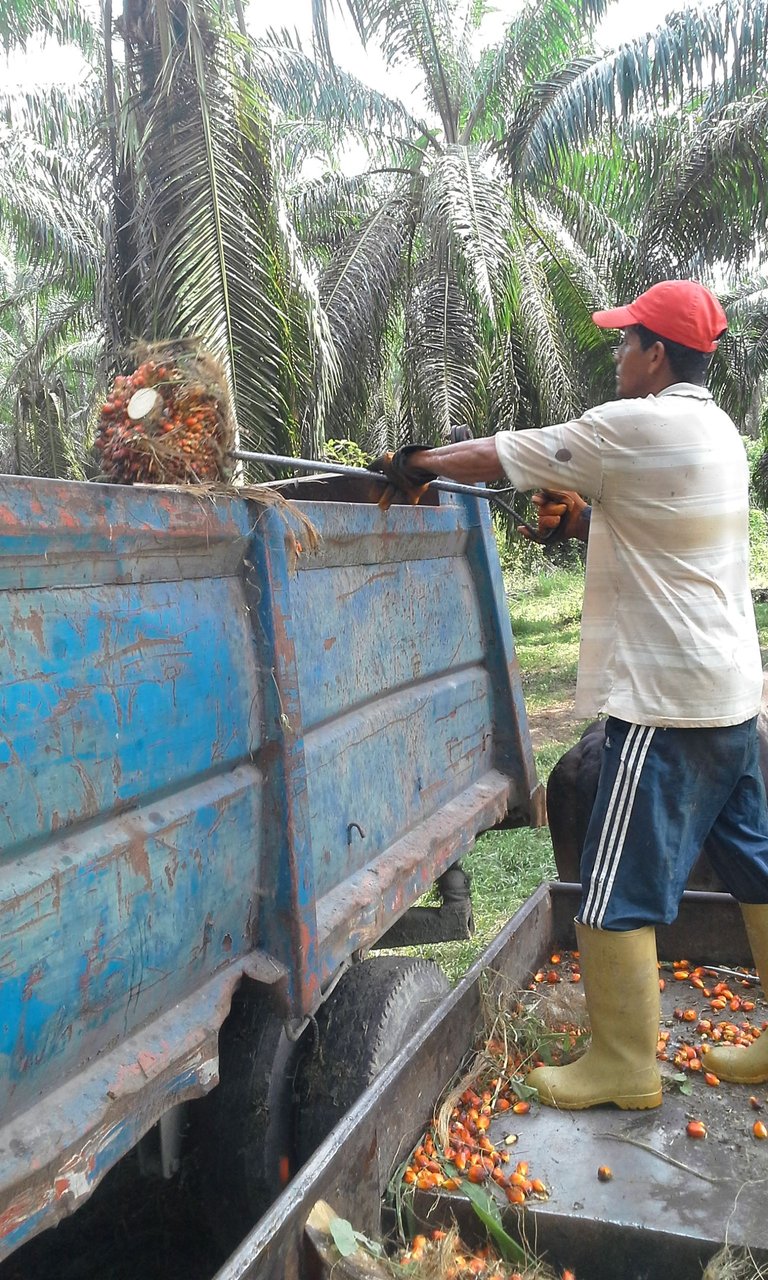
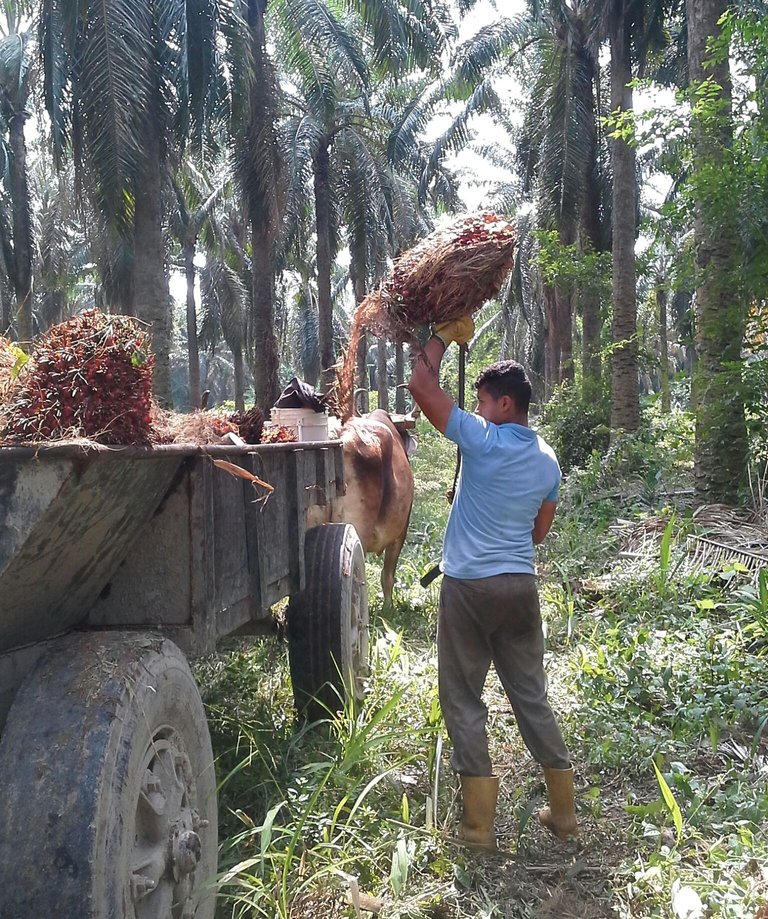
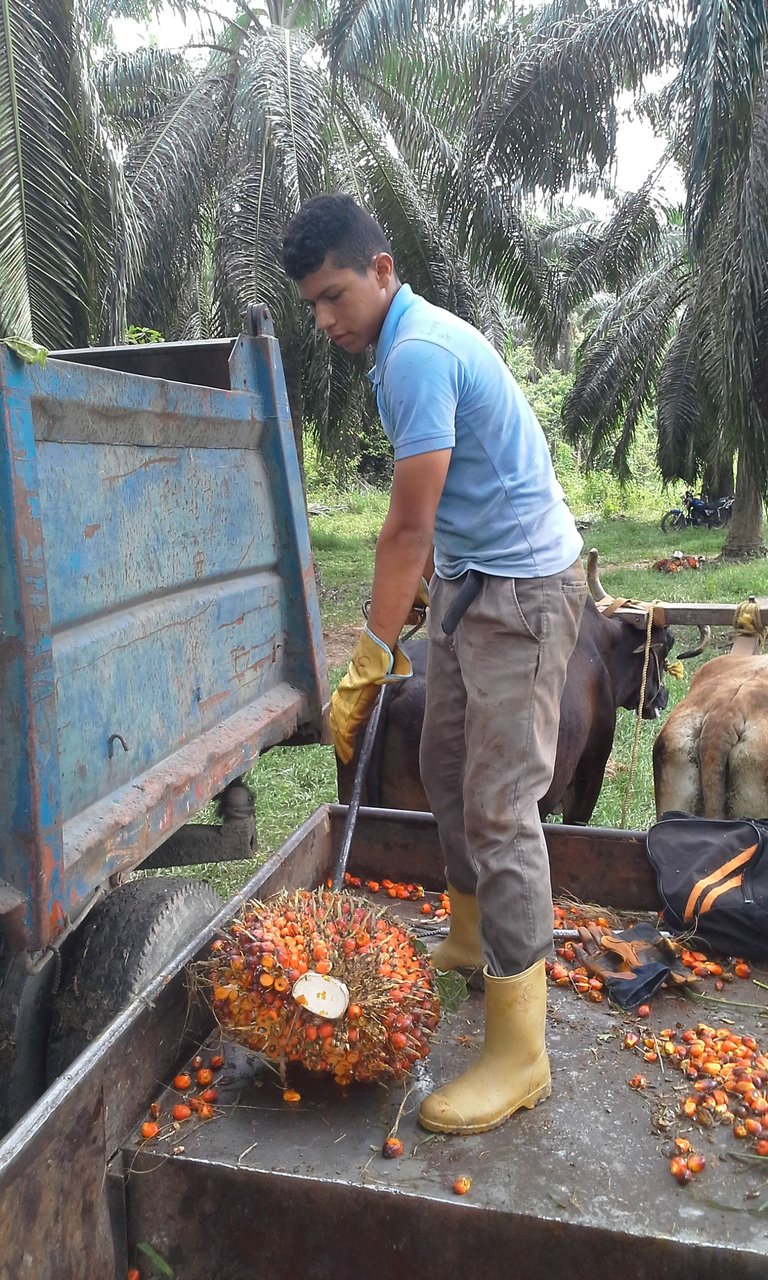
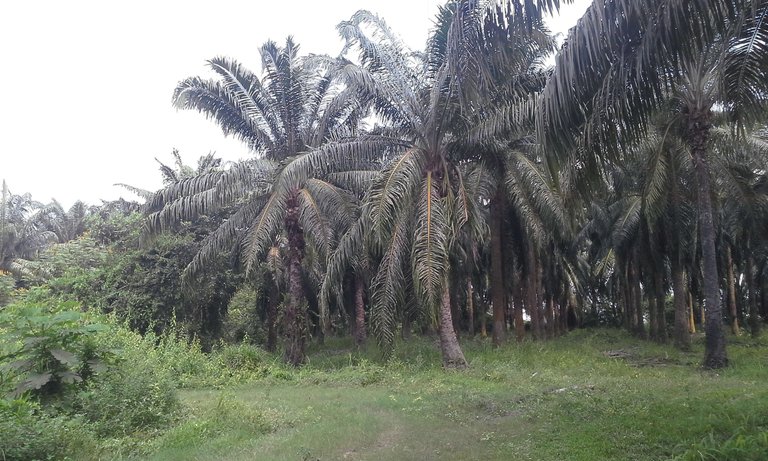
Today I want to share the first part # 1 of everything I have learned with my father and his co-workers at Palma Aceitera "EL PUERTO". The topic to be discussed today is the Fruit or Pepa de Corozo and the step by step how it is transported to the factory where it is processed. Remember that palm oil is booming all over the world)
But first to make them a little more understandable this topic will explain their origin and history and the basic concepts of this whole process or everything that has to do with the palm being part of agriculture.
![20180112_115831.jpg]
The oil palm is said to be of African as well as American origin, let's say that's why it's called Palma Aceitera de África or African Palm, but in the American contains it's only called palma; We, as Zulians in particular, are virtuous of having this great sowing alternative, since in the area where this plant is most planted is the South of the Lake of Maracaibo-Zulia State, which the municipalities that comprise this area are Jesús María Semprúm, Catatumbo, Colón, Francisco Javier Pulgar and Sucre.
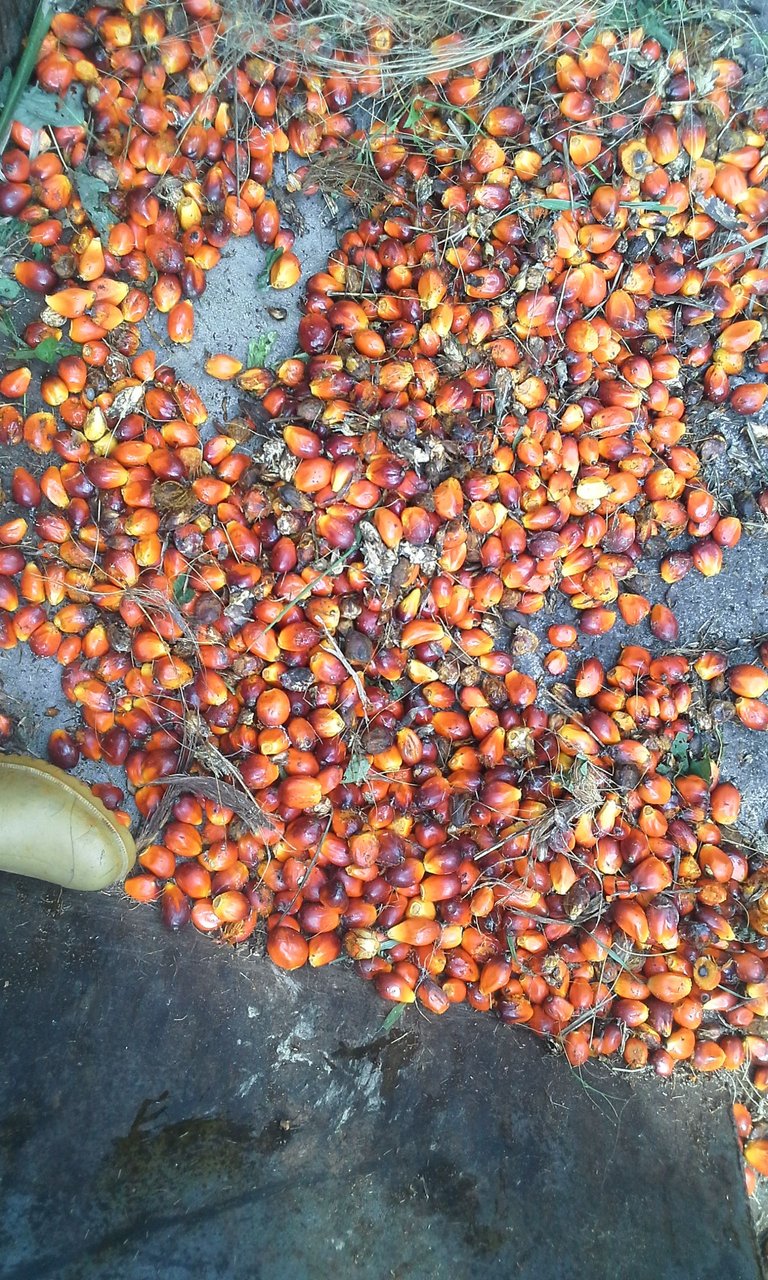
It is great to be able to plant this plant, since this crop produces 10 times more of the oil yield provided by most other oil crops and with more recent genetic materials the difference in yield is increasing and the health problems attributed to the Hydrogenated fats will have to make way for palm oil for the manufacture of products based on vegetable fats ..
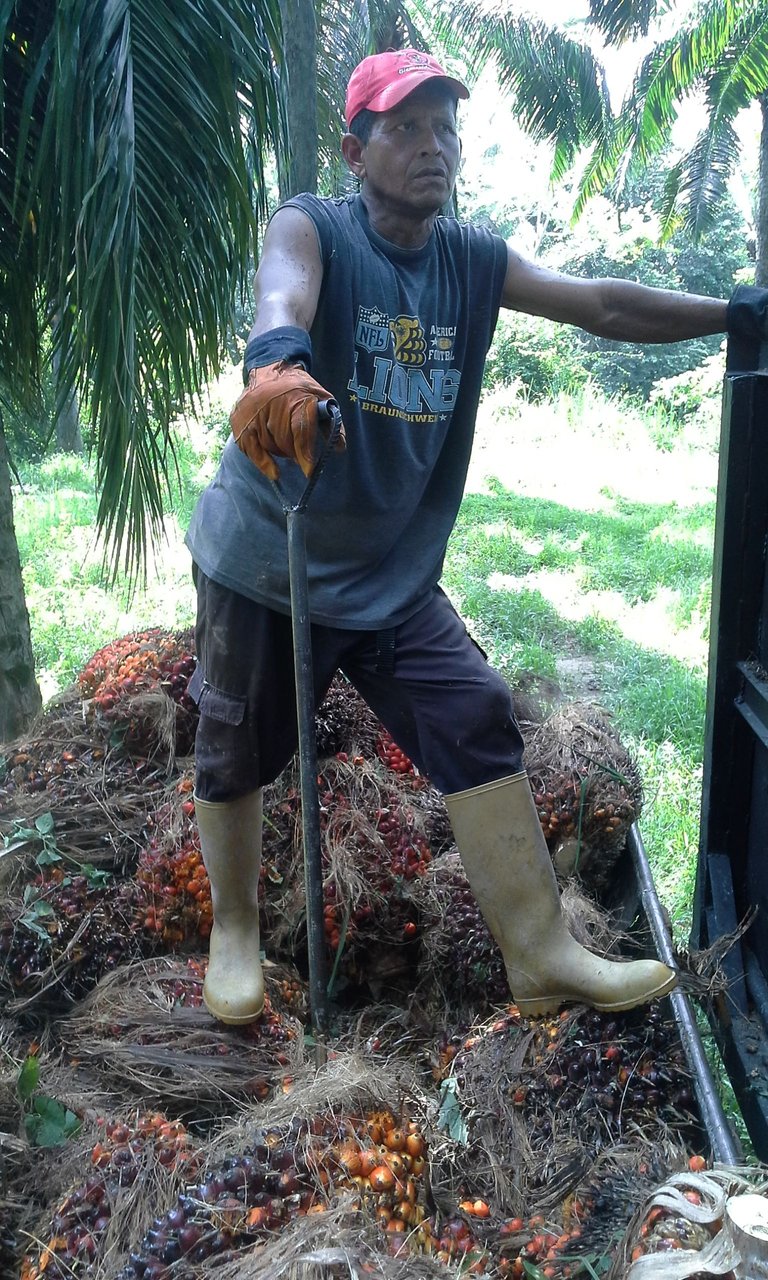
This plant produces two important oils: (1) palm oil, which is soft and is widely used in oleomargarine, lard and fats for cooking and in the industrial manufacture of many other products for human consumption, and (2), palm kernel oil (palm kernel) which has a high content of lauric acid and which in turn produces excellent foam soaps and also the above mentioned products, also vegetable oils are being transformed into many other products for technical use as : biofuels and natural biological oils.
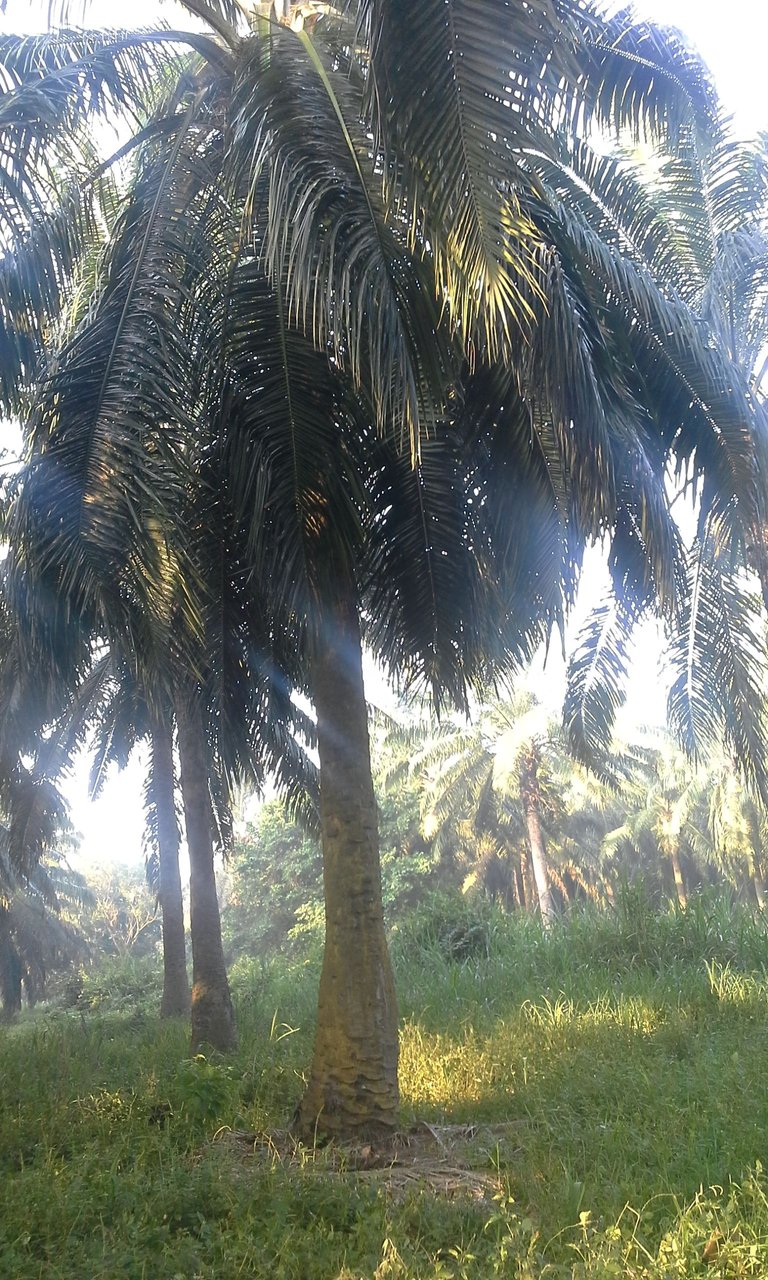 Hello to all the community of @Steemit, in a previous post I commented that I was 15 years old and that to help my mother @yanethchavez with the household expenses I help my father in his work of "Gueyero" so that the salary that my father earns a percentage (%) is for me, now a geyero is one who is responsible for collecting the fruit already cut in this case the fruit is the "Corozo", my father of 53 years of age works in PALMA ACEITERA "EL PUERTO" located in the Parroquia Santa Cruz-Zulia State-Venezuela where we come from, it is important to note that not only the work of the geyser is important here but also those workers who are responsible for cutting the fruit (corozo) and those who are colleros.
(
Hello to all the community of @Steemit, in a previous post I commented that I was 15 years old and that to help my mother @yanethchavez with the household expenses I help my father in his work of "Gueyero" so that the salary that my father earns a percentage (%) is for me, now a geyero is one who is responsible for collecting the fruit already cut in this case the fruit is the "Corozo", my father of 53 years of age works in PALMA ACEITERA "EL PUERTO" located in the Parroquia Santa Cruz-Zulia State-Venezuela where we come from, it is important to note that not only the work of the geyser is important here but also those workers who are responsible for cutting the fruit (corozo) and those who are colleros.
(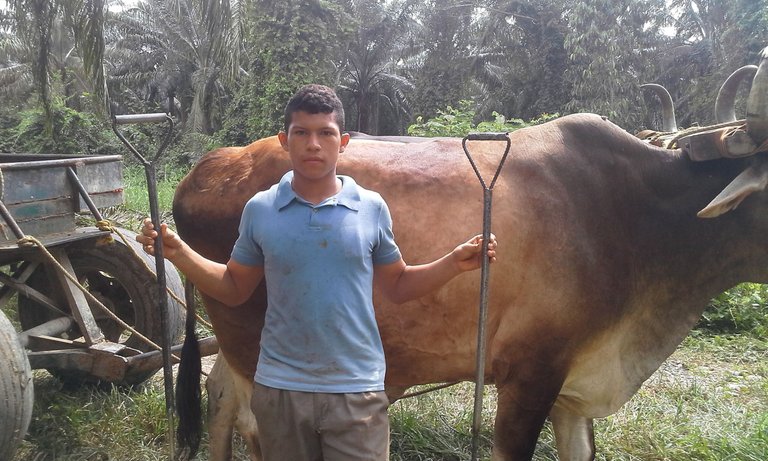 )
)
Palm oil has been consumed for more than 5,000 years. It is obtained from the fruit of the tree "Elaeis guineensis", originally from West Guinea since the 15th century it was introduced in other parts of Africa, Southeast Asia and Latin America, along the equatorial zone.
Although in the American Continent the first plantations were established in the decade from 1940 to 1994 were the countries: Costa Rica, Guatemala, Brazil, Venezuela, Peru, Colombia, Ecuador and Panama.
![20180112_113927.jpg]
(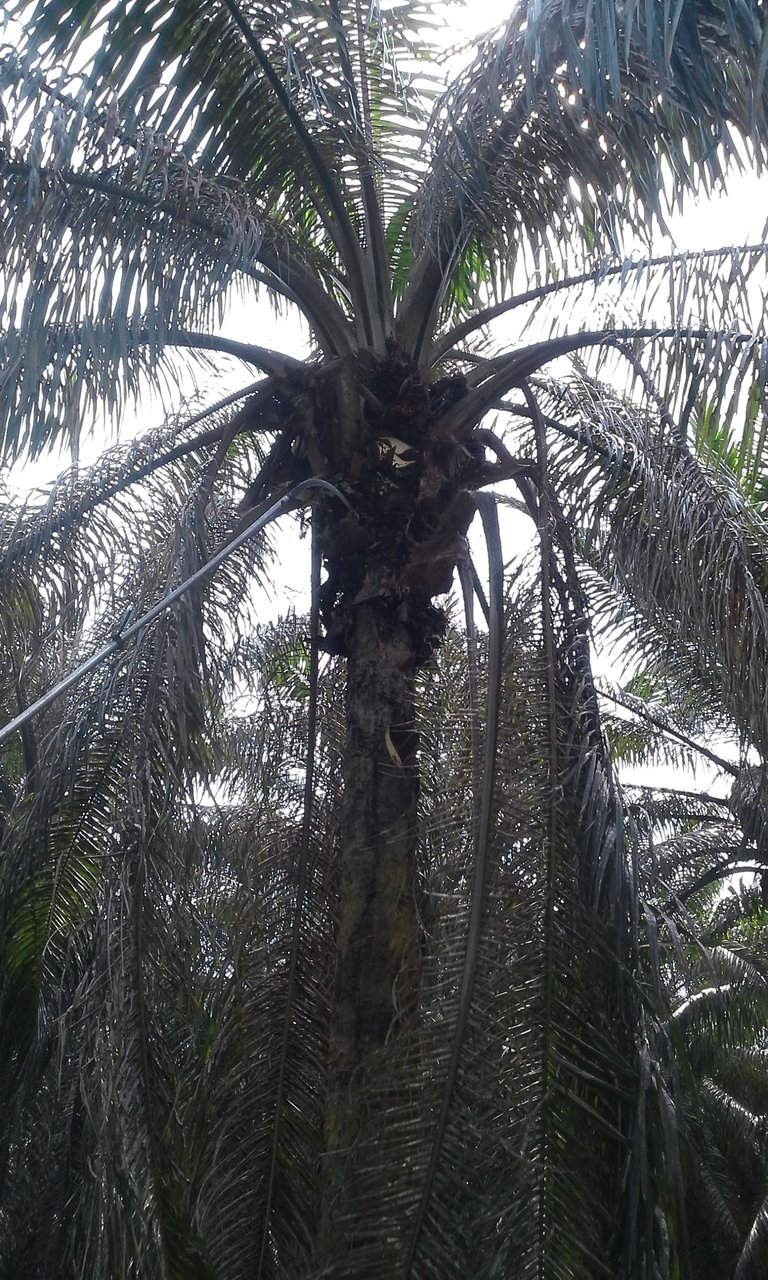 )
)
The oil palm is a perennial plant, "cultivated for its high oil productivity". The species has three varieties: Dura, tenera and pisifera; of the variety tenera is the one that commercially uses for the extraction of the oil and is a cross between the other two varieties.
Importance of palm oil.
Palm oil is a natural food that has been consumed for 5,000 years. It is refined without the need for chemical solvents, which reduces the risk of contamination by waste.
The activity of the oil palm has allowed the direct benefit of 2 724 families, equivalent to a population of 14,982 people, who, as previously mentioned, are organized into cooperatives and associations for the exploitation of oil cultivation and industrialization.
*Basic concepts.
What is oil palm or African palm?
It is a type of palm, whose scientific name is Elaeis guineensis. It is a perennial crop and of late and long yield, whose productive life can last more than 50 years. Begins to produce fruit after two and a half years of planting, and reaches its highest production between 20 and 30 years (12 meters high), after which decline and cease to be profitable, especially by height to which the fruits are found (up to 40 meters!). It is a plant typical of the tropical region (warm tropical humid forest), grows at altitudes below 500 masl. Its fruit is reddish.
What is palm oil?
Palm oil is extracted from the pulp of the fruit of the oil palm through several operations. It is produced in the form of large-scale monocultures and is exported from tropical areas to the global market (mainly the European Union, China, India, USA). It is the second most traded and consumed vegetable oil in the world (after soybean oil), in the food, industrial and energy sectors. Therefore, palm oil is a strategic raw material in the agribusiness sector. The profits are extraordinary.
Where is palm oil produced?
Oil palm grows in tropical climates. Producing countries are: Indonesia, Malaysia, Papua New Guinea, Cameroon, Uganda, Côte d'Ivoire, Cambodia, the Philippines and Thailand, as well as Colombia, Ecuador, Peru, Brazil, Guatemala, Mexico, Nicaragua and Costa Rica. In these countries, oil palm is expanding rapidly over ecosystems such as tropical forests, in the form of industrial monocultures. Industrial monocultures occupy all large areas of territory, undermining the right of local people to produce their own food according to the conditions of their lands and their traditional food culture. This has as a consequence that while palm oil and its derivatives are sold mostly in international markets, producing countries are forced to import food. For these reasons, many social, environmental and human rights organizations have responded critically to the indiscriminate expansion of oil palm.
Who and what uses palm oil?
Palm oil is among the ingredients of many food products that we consume daily. All of us consume palm oil from the deforestation of tropical forests. This is sold to multinational companies such as Unilever, Nestlé and Procter & Gamble, and other major brands of food, cosmetics and agrofuels.
Now, dear friends of this beautiful community, I will show you step by step the work a worker has done since he chops the corozo until he transports it to the factory to be processed.
THE Cutter.
It is the one that is responsible as well as the word short or knock down the leaves and fruits of the palm but also when cutting the fruit the workers are pruning the palm so that when cutting the fruit is easier, prune is to remove or clean the palm so that when cutting it is faster.
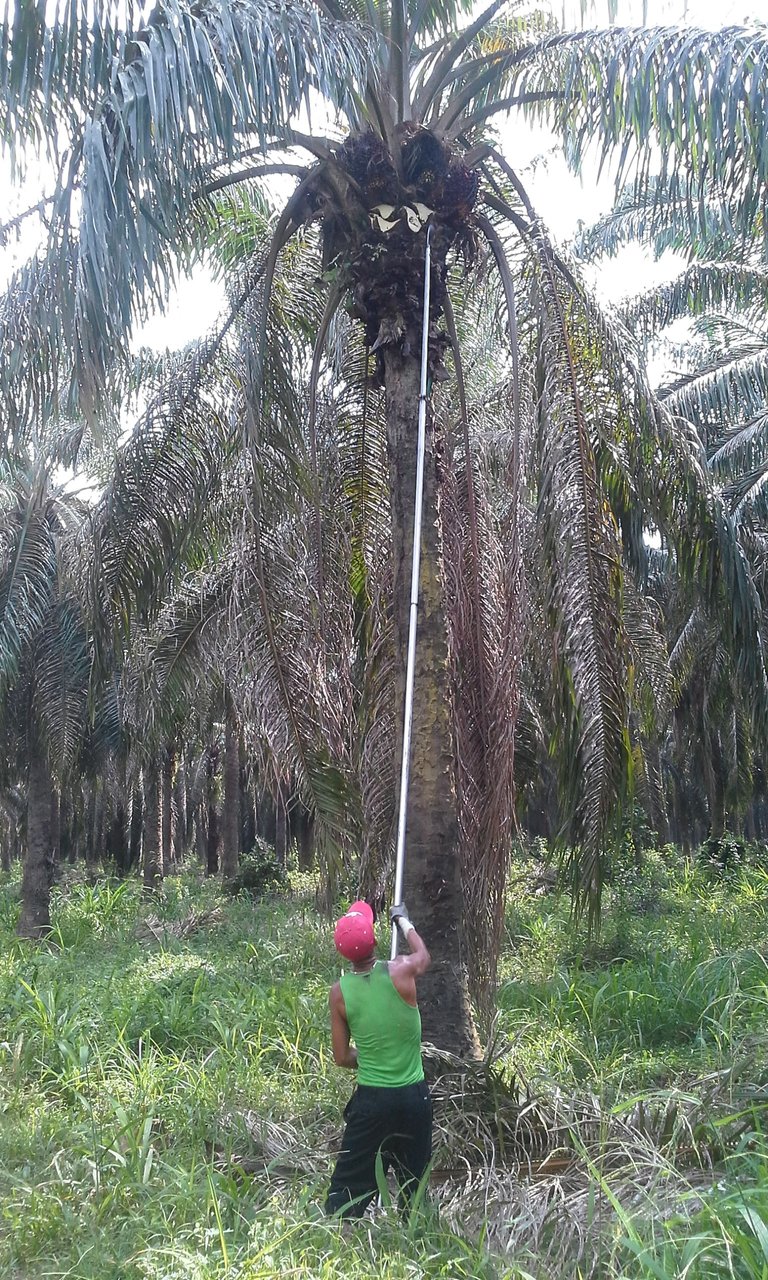
The Colero.
It is responsible for collecting the fruit (corozo) and the pruned leaves that the cutter previously cut, leaving the fruit in the street to be picked up, since when the cutter drops the fruit to the ground, the corozo seeds are watered and dirty leaves, what is there that also the work of the colero is sorting and collecting said dirty.
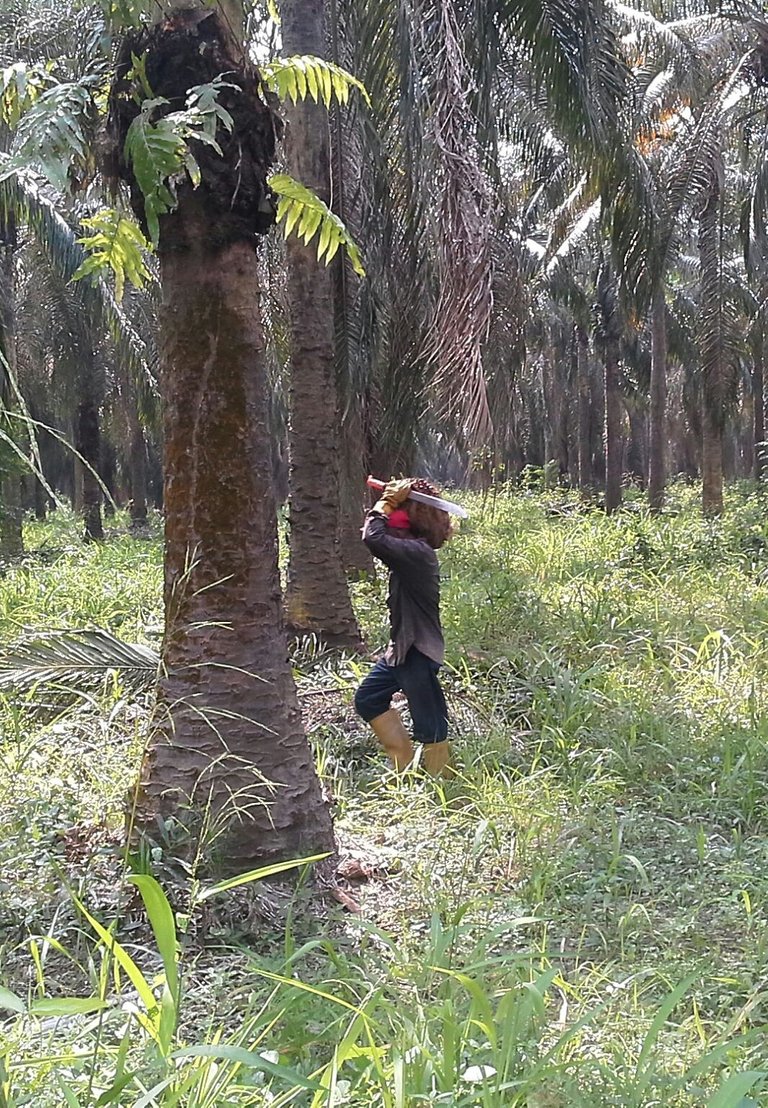
Note: At the moment that the cutter and the colero have finished the street that corresponded to them to do their work they take a stick of the ground to mark with a code that before was assigned them properly and this they mark it in one of the part of the trunk of the sheet.
Each cutter and collector has their code and must place it in each street that is doing their work, this serves as a guide and note for the geese who, in doing what I am going to explain, are also in control of the cut fruits.
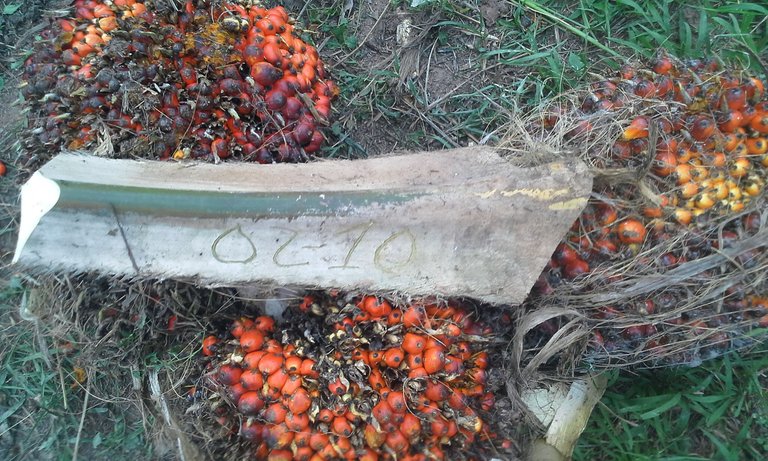
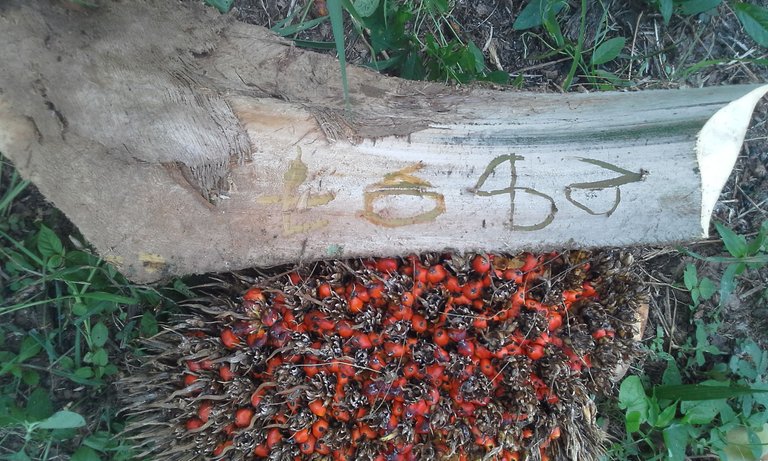
The Gueyero.
He is the one who picks up the fruit and throws it or takes it to the big cart.
![20180112_121432.jpg]
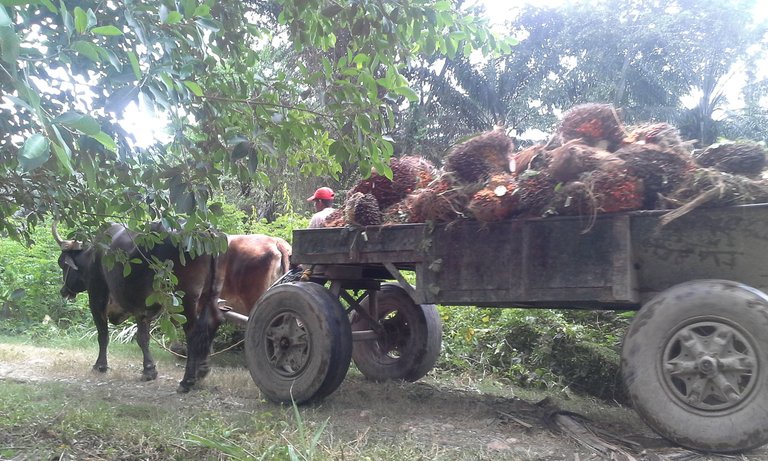 (
(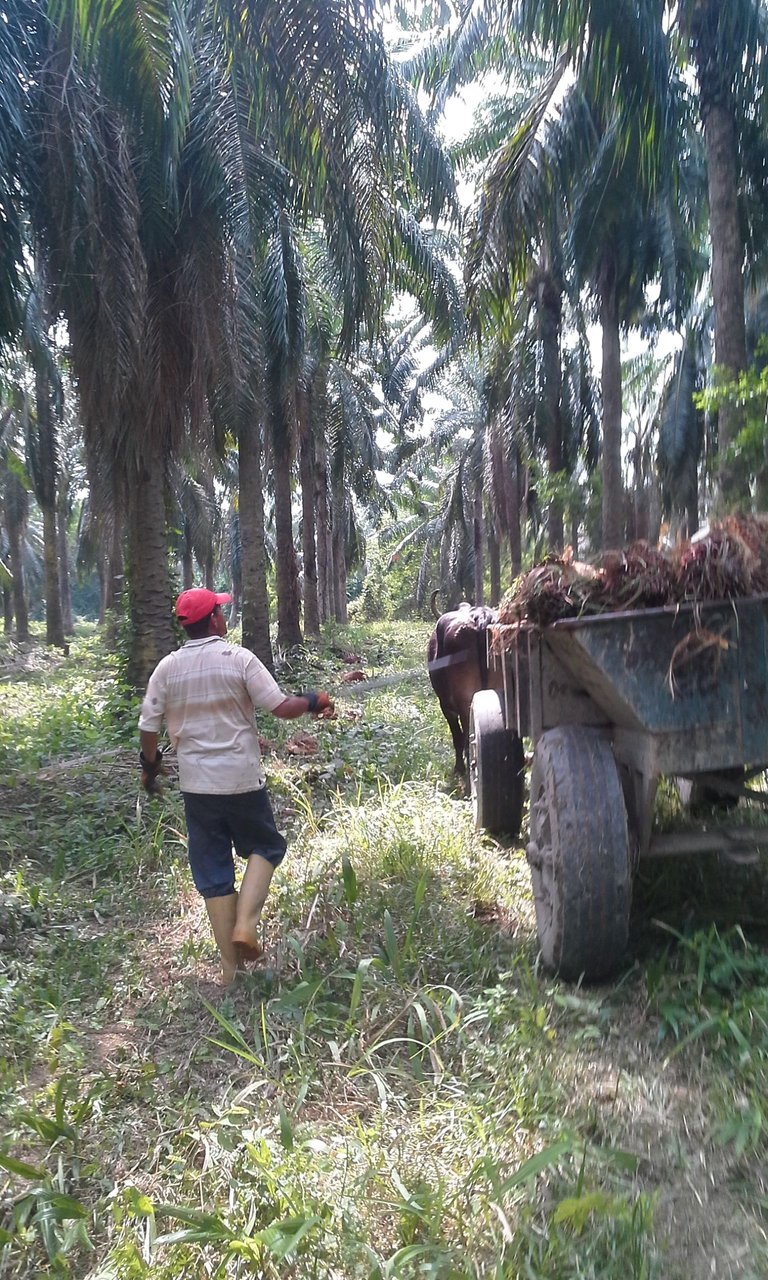 )
)
Note: When the cart is completely full the tractor must go to look for it and then be taken to where the fruit (corozo) has to be processed as is the factory.
I hope you liked my post and that it was as understandable as possible for all of you, soon I will continue to share many more topics and procedures that have to do with Palma Aceitera is for me a pleasant opportunity as a young person to learn to love work hard and to get experience from the workers who know even more than me.
Tool?.
The chuso.
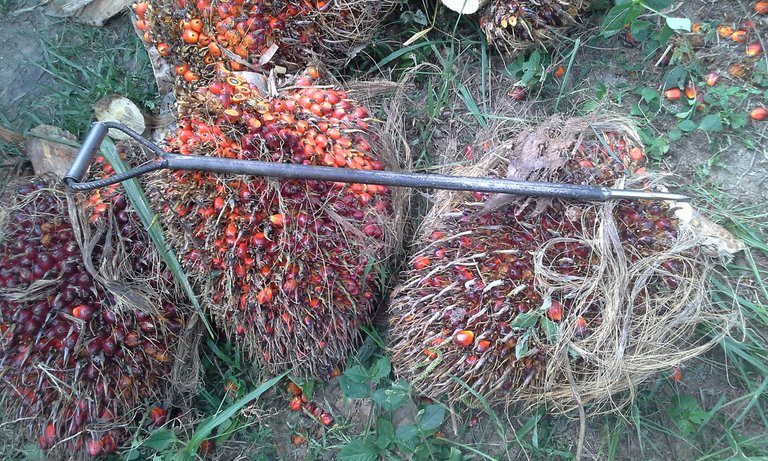
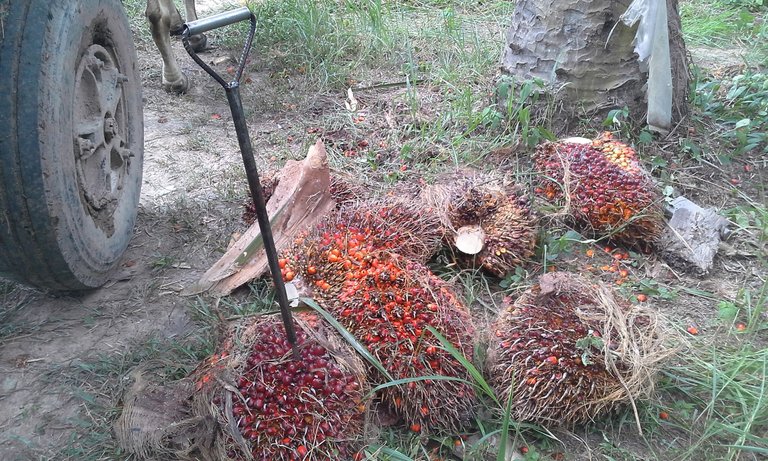
Pepas del Corozo
From these seeds, not only the vegetable or edible oil is extracted, but also the coconut oil.
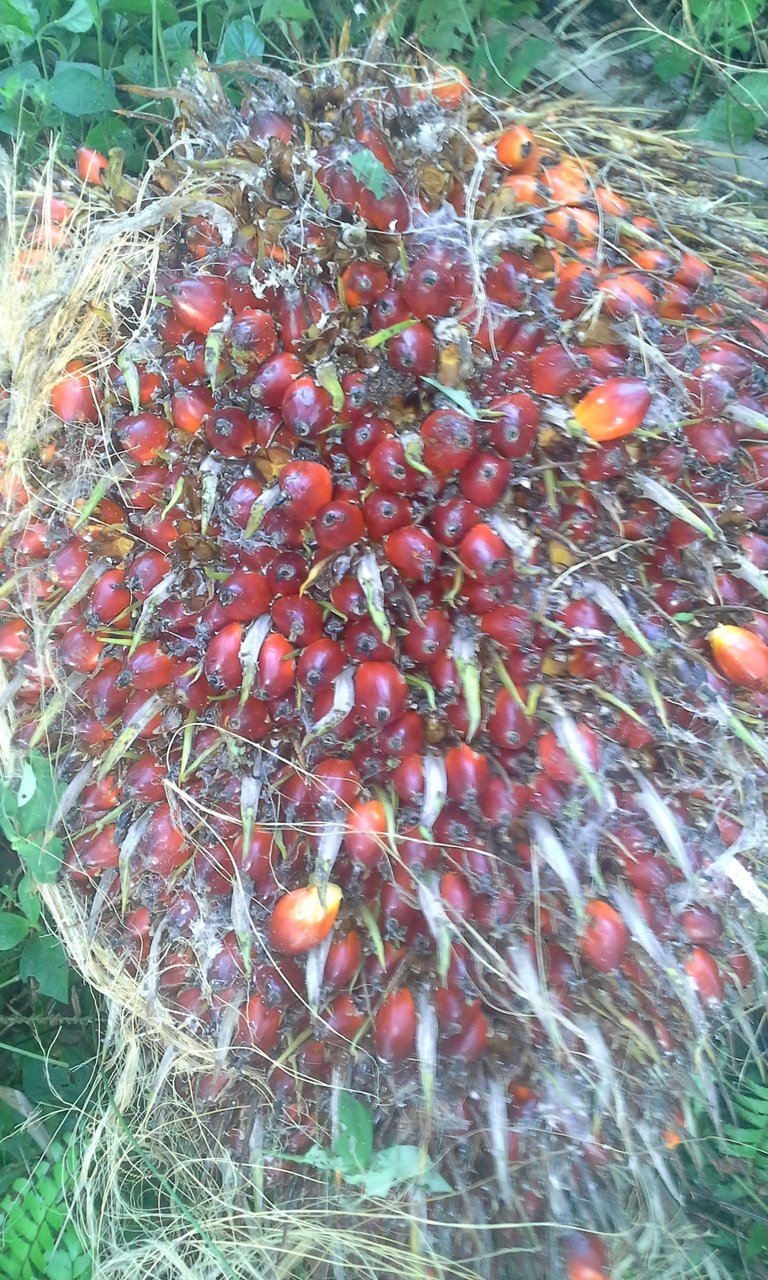
For more information you can consult in these web pages, which you use today as FUENTES :.
http://www.mag.go.cr/bibioteca_virtual_ciencia/tec_palma.pdf
https://www.salvalaselva.org/temas/bioenergia/palma-aceitera
Photos taken by @humbertojesus with my phone GALAXY ACE 4 LTE .
Este es un servicio gratuito para nuevos usuarios de steemit, para apoyarlos y motivarlos a seguir generando contenido de valor para la comunidad.
<3 Este es un corazón, o un helado, tu eliges .Hola @humbertojesus, upv0t3
: )
N0. R4ND0M:
8721 5865 7535 2833
8489 4031 2030 1277
9974 8133 7968 6473
1387 5999 3678 4367
Congratulations @humbertojesus! You received a personal award!
Click here to view your Board of Honor
Congratulations @humbertojesus! You received a personal award!
You can view your badges on your Steem Board and compare to others on the Steem Ranking
Vote for @Steemitboard as a witness to get one more award and increased upvotes!